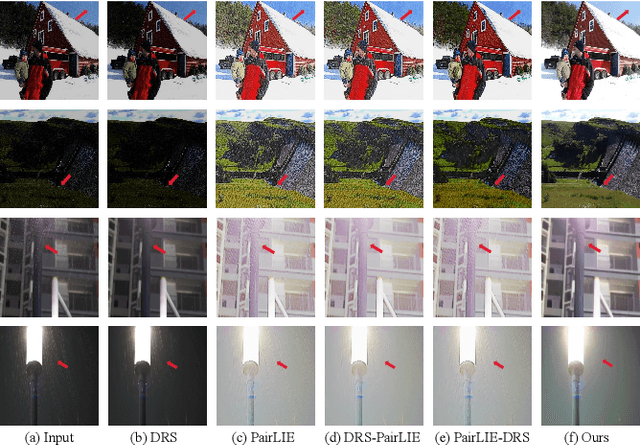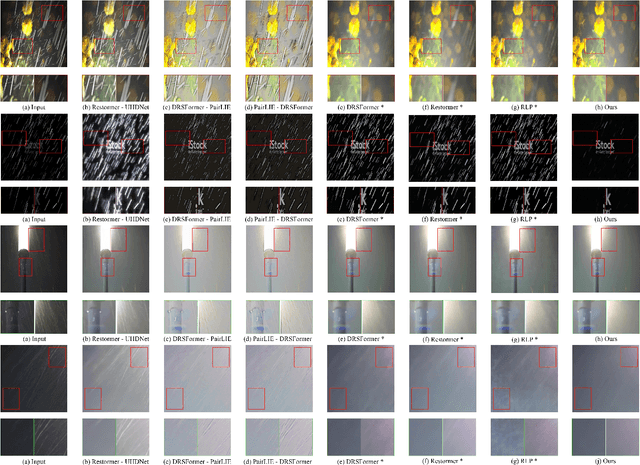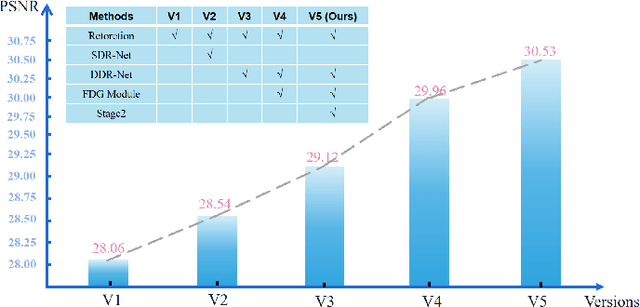Unlocking Low-Light-Rainy Image Restoration by Pairwise Degradation Feature Vector Guidance
Paper and Code
May 06, 2023



Rain in the dark is a common natural phenomenon. Photos captured in such a condition significantly impact the performance of various nighttime activities, such as autonomous driving, surveillance systems, and night photography. While existing methods designed for low-light enhancement or deraining show promising performance, they have limitations in simultaneously addressing the task of brightening low light and removing rain. Furthermore, using a cascade approach, such as ``deraining followed by low-light enhancement'' or vice versa, may lead to difficult-to-handle rain patterns or excessively blurred and overexposed images. To overcome these limitations, we propose an end-to-end network called $L^{2}RIRNet$ which can jointly handle low-light enhancement and deraining. Our network mainly includes a Pairwise Degradation Feature Vector Extraction Network (P-Net) and a Restoration Network (R-Net). P-Net can learn degradation feature vectors on the dark and light areas separately, using contrastive learning to guide the image restoration process. The R-Net is responsible for restoring the image. We also introduce an effective Fast Fourier - ResNet Detail Guidance Module (FFR-DG) that initially guides image restoration using detail image that do not contain degradation information but focus on texture detail information. Additionally, we contribute a dataset containing synthetic and real-world low-light-rainy images. Extensive experiments demonstrate that our $L^{2}RIRNet$ outperforms existing methods in both synthetic and complex real-world scenarios.
 Add to Chrome
Add to Chrome Add to Firefox
Add to Firefox Add to Edge
Add to Edge